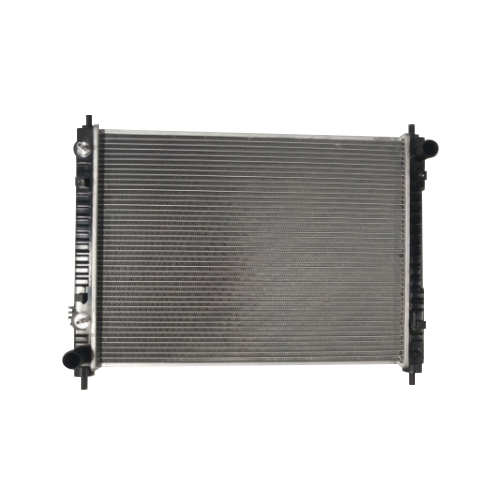The function of Automotive Aluminum Plastic Radiator
2025-05-26
The Automotive Aluminum Plastic Radiator plays a crucial role in a vehicle’s engine cooling system. It is a hybrid radiator that combines an aluminum core with plastic tanks, and is widely used in modern vehicles due to its efficiency, light weight, and cost-effectiveness.
Function of an Automotive Aluminum Plastic Radiator
1. Engine Cooling
The primary function is to remove excess heat from the engine to prevent overheating.
It receives hot coolant from the engine and cools it by air flow through aluminum fins before sending it back.
2. Heat Exchange
The aluminum core, typically made of tubes and fins, acts as a heat exchanger.
Coolant flows through the tubes, and heat is dissipated into the air via the fins.
3. Maintaining Optimal Engine Temperature
Helps maintain the engine’s ideal operating temperature (usually between 90°C and 105°C).
Ensures optimal combustion, fuel efficiency, and reduced emissions.

4. Integration with Other Cooling System Components
Works in coordination with the thermostat, water pump, and cooling fan.
The plastic tanks at the sides or top/bottom house inlet and outlet ports and may integrate transmission coolers or sensors.
5. Lightweight Construction
The plastic tanks reduce overall weight compared to full-metal radiators, improving fuel efficiency and vehicle handling.
Also reduces manufacturing costs.
6. Corrosion Resistance
Aluminum is naturally corrosion-resistant, and plastic tanks are immune to rust, offering longer service life than traditional copper-brass models in some applications.
If you are interested in our products or have any questions, please feel free to contact us and we will reply you within 24 hours.